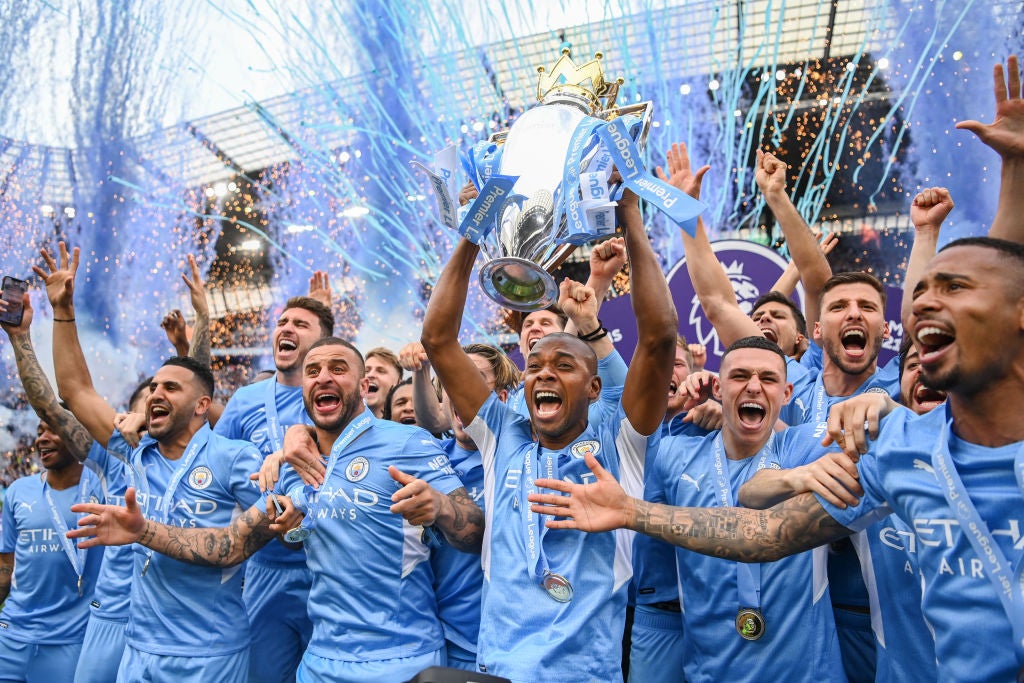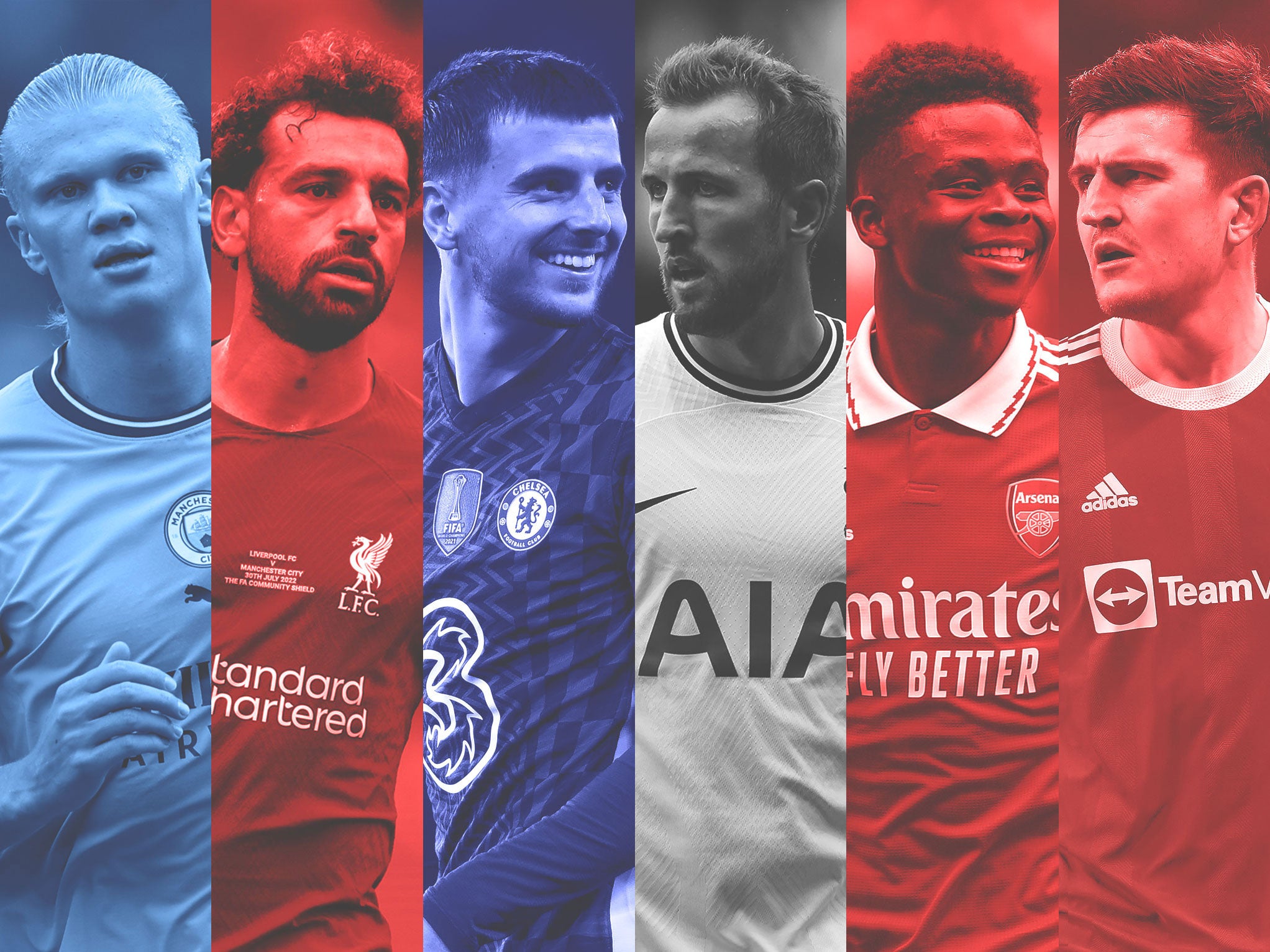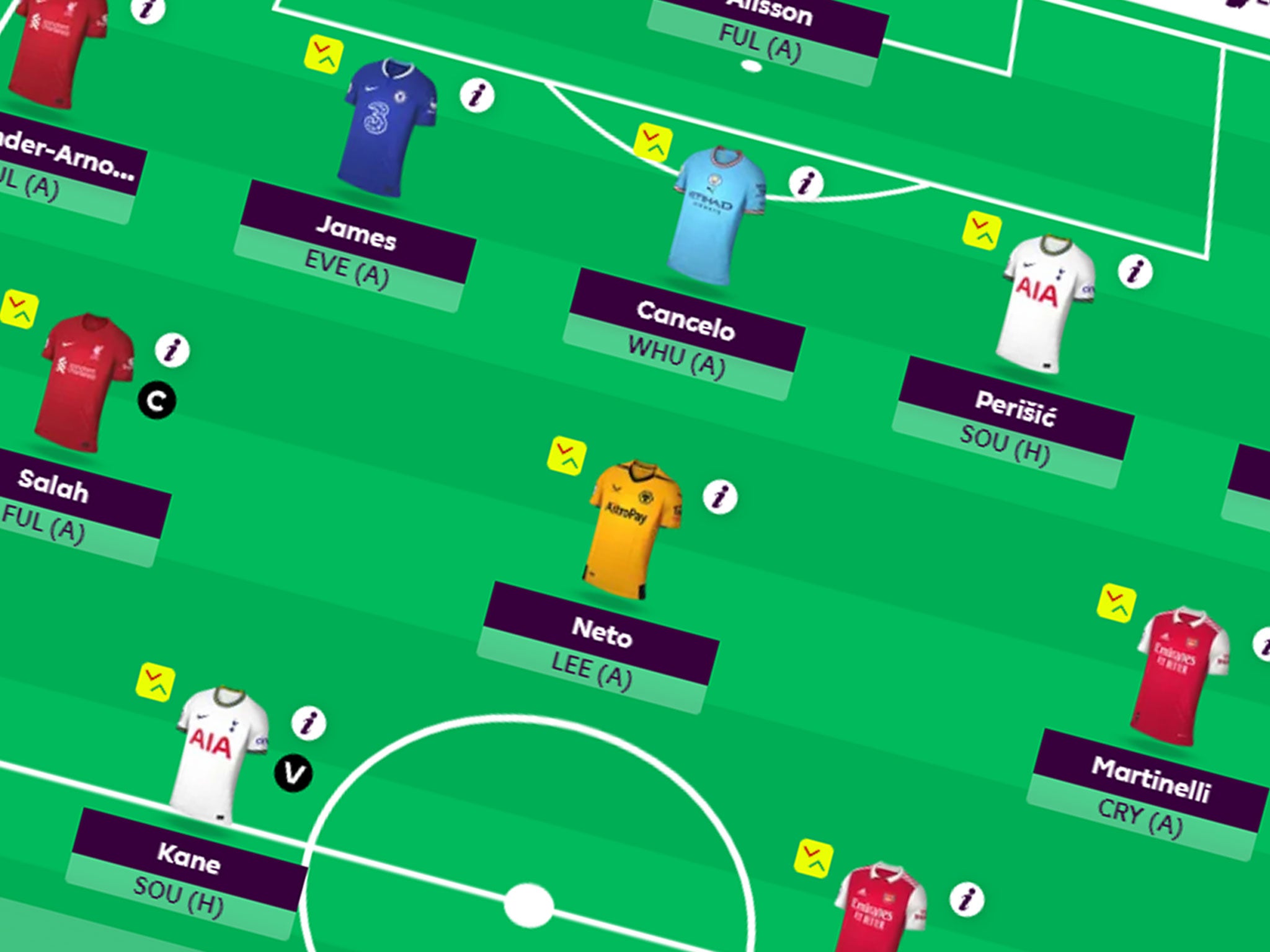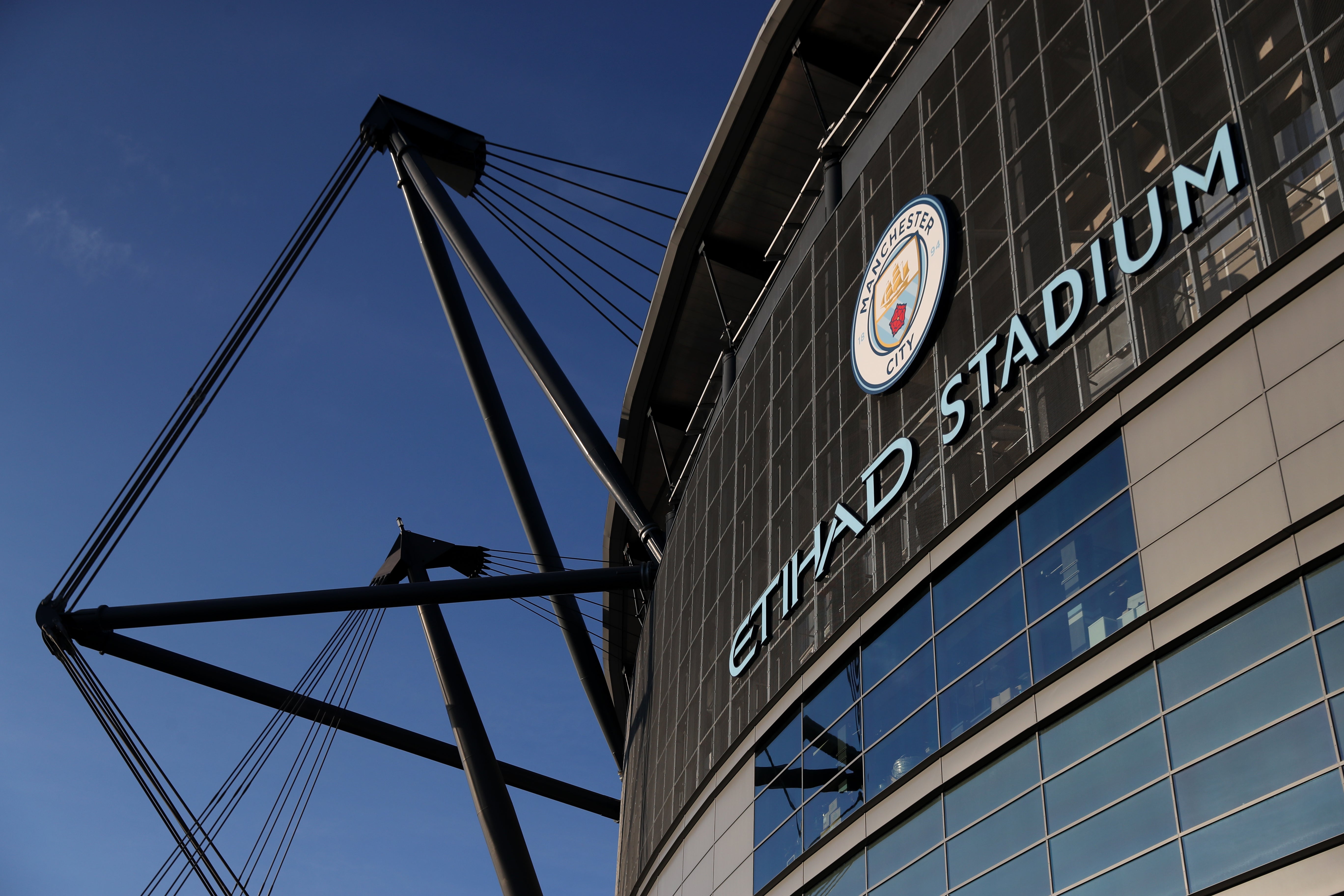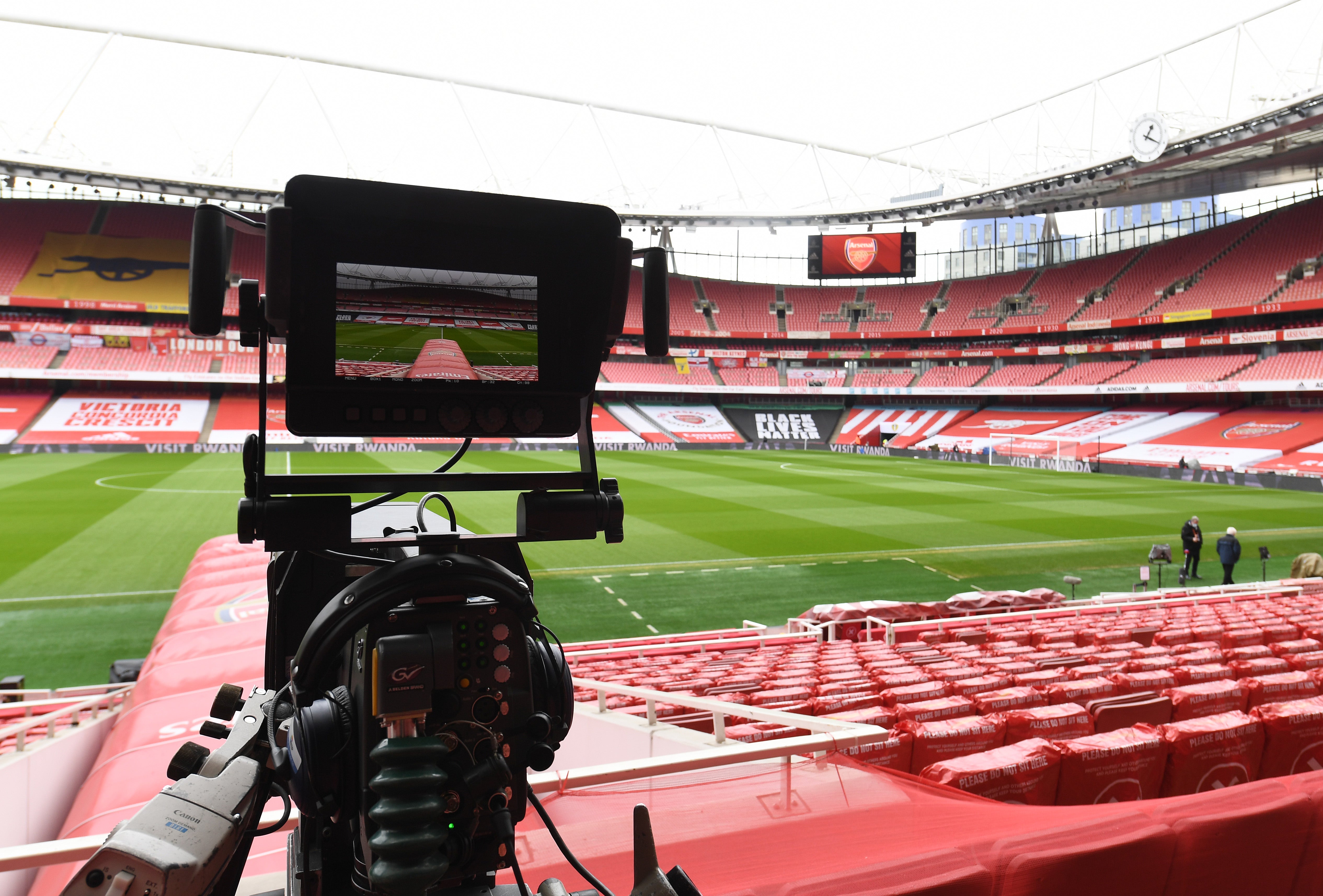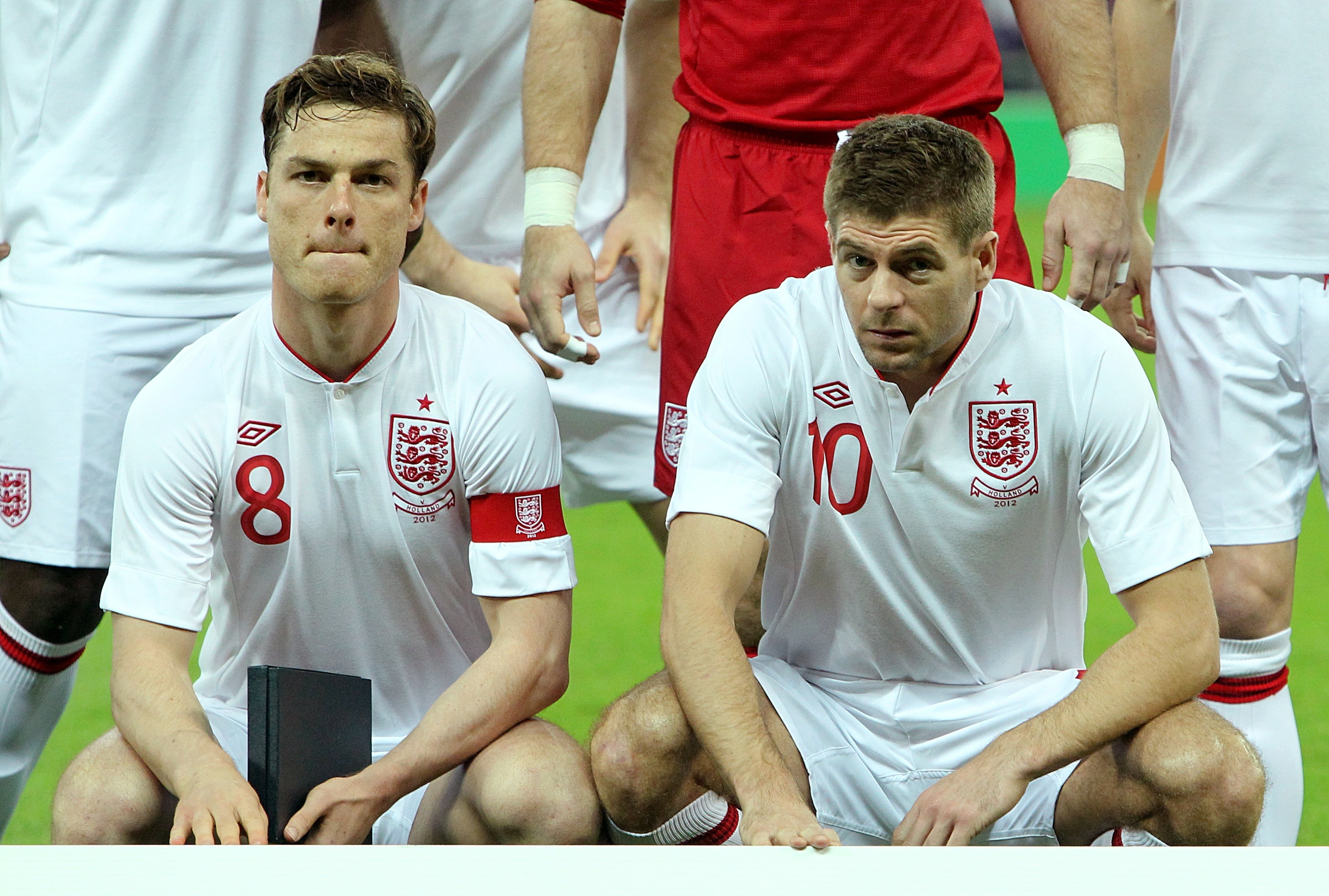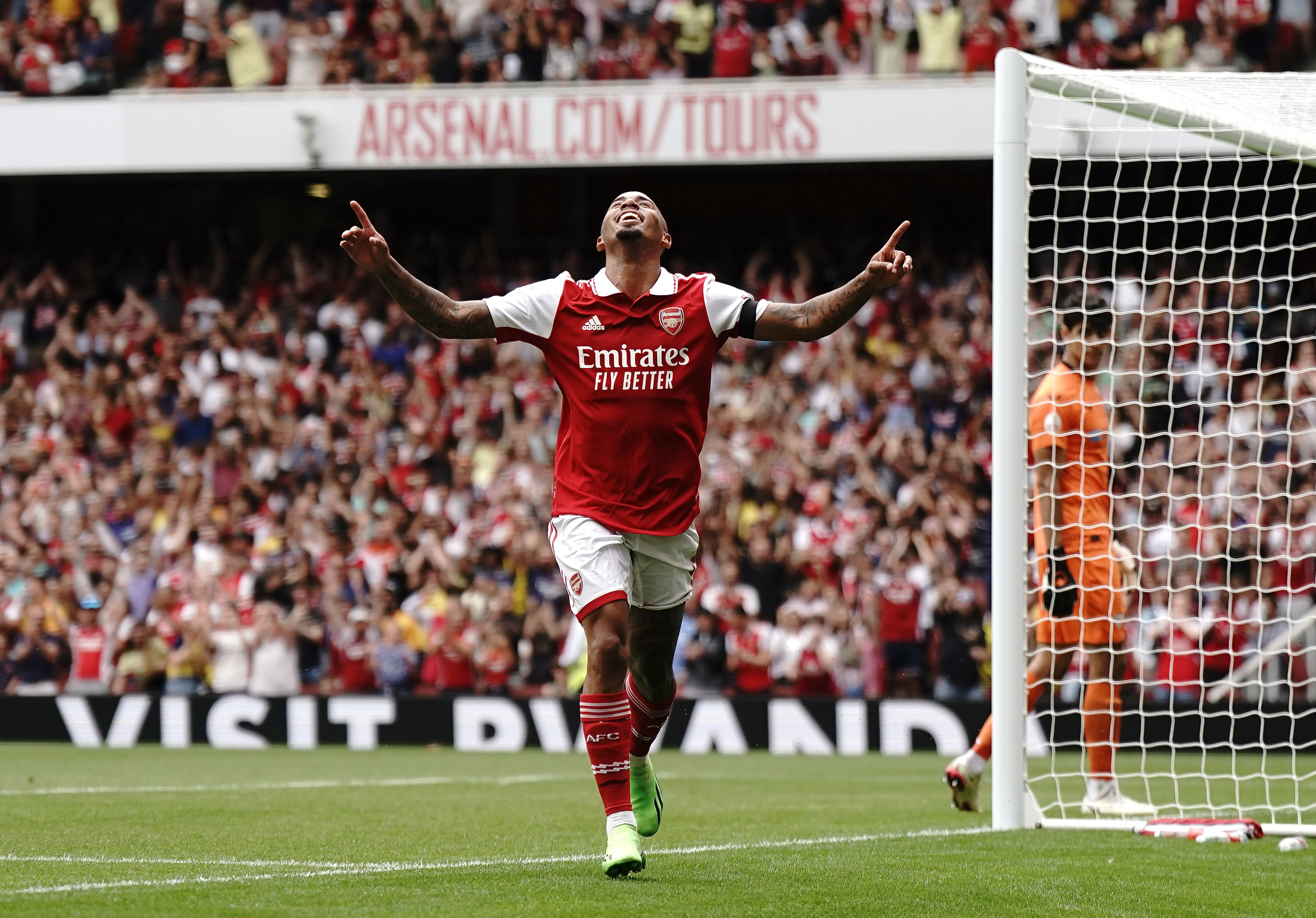Is the Premier League too big to fail or could it fall?
The Premier League represents the very top of the game but there are many who would love to see it fall
Sign up to Miguel Delaney’s Reading the Game newsletter sent straight to your inbox for free
Sign up to Miguel’s Delaney’s free weekly newsletter
Thanks for signing up to the
Football email
A few months ago, some senior European football figures were in England for a meeting, and talk naturally turned to the “product” the Premier League is. There was admiration, but also aggravation.
A sentiment shared that evening, that is increasingly echoed across the continent, is that England’s elite competition is now “so arrogant” it “would be great if it fell”.
In one sense, you couldn’t have a greater indication of the Premier League’s power than such resentment. There has been satisfaction within Camp Nou at how Barcelona have beaten Chelsea to both Raphinha and Jules Kounde this summer, as that’s the way it’s supposed to be.
To paraphrase The Wire, though, it’s really the other way. And it’s only keeping on down that direction.
Manchester City’s signing of Erling Haaland showed that, as the Premier League reaches its 30th anniversary, it has moved onto an even greater level of power. The competition is now where most of the best talent goes, more quickly and more extensively than even Serie A at its peak.
Recommended
The truth is that the Premier League is now at a high point way beyond that, and any domestic league in history.
It has by far the biggest income, which comes from by far the biggest audiences. That hasn’t yet translated into the greatest return of European trophies, as with Serie A’s height, but that’s an inevitability. Since 2018-19, the worry every season has been whether it will be yet another all-English European final.
Really, the Premier League is threatening to hollow out European football in the way European football hollowed out South America three decades ago, so quickly absorbing everything of worth elsewhere.
That does raise another question, that many senior continental executives would “relish”. The history of European football has been leagues rising and falling like great American families, so what could actually cause the Premier League to fall? Is that even possible? Is its dominance unassailable? Is this the future, stamped on our screens, the true Super League in everything but name?
Central to that question is how previous leagues fell, and how the Premier League rose in the first place.
The dominant league eras
La Liga 1955-63
Serie A 1962-69
Eredivisie/Bundesliga 1968-76
England 1975-85
Serie A 1988-04
La Liga 2004-18
England’s first era of true dominance, between 1975 and 1985, was destroyed by hooliganism and a European ban after Heysel that saw its clubs miss tactical and technological evolution elsewhere. Serie A’s great era collapsed with its crumbling infrastructure, that decay symbolising a culture of corruption that culminated in Calciopoli. Most recently, La Liga’s big two made it too top heavy, causing it to topple over from their bloated sizes.
These declines were only steepened by the innovations that England’s own crisis actually created space for.
The primary reason for the Premier League’s success is obviously its immense broadcasting money, fostering what City’s Ferran Soriano describes as “a virtuous cycle”. This – very simply – is where money improves quality, which increases popularity, which brings more money. That cycle still had to start somewhere, and it wasn’t a Bramall Lane pitch that saw Sheffield United’s Brian Deane score the competition’s first goal, surrounded by largely forgotten teammates like Simon Tracey, Alan McLeary and Glyn Hodges.
It was really the frustration with a football culture that produced games, well, so unglamorous. The breakaway clubs had the crucial advantage of “working off a blank sheet of paper”, leaving them able to try something different.
That was “something simple for the 21st century, bypassing the 20th”. The first step was a clear founder member agreement, where every club was an equal share of revenue as well as one vote on every issue, with every issue requiring a two-thirds majority.
That may seem so elementary, but the transparency and clarity were revolutionary at the time, and have continued to be profoundly influential. That is mainly because of the greatest innovation, that did involve considerable risk.
At a time when subscription television was still stumbling, and the majority of European leagues were highly sceptical about its benefits, the new Premier League went with it wholesale. The partnership with Sky has been described by the late executive Sam Chisholm as “the greatest corporate romance of all time”. It created a profoundly symbiotic relationship and the ultimate example of this virtuous cycle. Football brought viewers to Sky, whose growth was furthered by investment in marketing, which brought more money to the Premier League, making it more popular, and on and on… and beyond. Such growth brought a game-changing realisation from Richard Scudamore in the late 90s. It was akin to McDonald’s Harry Sonneborn divining that they weren’t in the burger business – they were “actually in the real estate business”. Scudamore, as outlined in The Club, realised that the Premier League wasn’t primarily in the business of organising sporting events. It was in the business of selling TV rights.
The masterstroke of negotiating broadcasting deals directly with individual markets proved the landmark moment. The move expanded the cycle and the income, while enhancing the Premier League to such a size that it attracted more and more interest and more and more investment – right up to state level.
Principles like revenue distribution and “competitive balance” – the idea anyone can beat anyone – became virtues to sell along with the gleaming image of the football itself. While Serie A was ravaged by a match-fixing scandal, European executives were speaking admirably about how even the 700-page Premier League’s handbook had such clear rules that there could be no “grey areas”. The product was pristine.
Alberto Colombo, deputy general secretary of the European Leagues Association, holds the Premier League up as a model for everyone else.
“The secret of its success over the years is definitely its competitive balance. The revenue distribution model implemented by the Premier League has been historically very fair and democratic. This creates the basis for compelling and unpredictable competition, which is ultimately what fans want to experience and see! It is not a secret that at the European Leagues we firmly promote the need to distribute money in a more equal and fair way, and also within Uefa.”
Other unique advantages have accelerated international growth. There was the English language, there was the timezone between USA and Asia, there was the cultural attraction of England as the passionate home of the game. There was even the weather, since people in Britain were more likely to stay in watching television for most evenings of the year, compared to the outside culture of other major football countries. This was a captive TV audience in-waiting.
It all sped up this cycle, and added up the most astonishing financial figures any sporting competition has yet seen. This is the peak.
***
Just as the Premier League now sells itself on the most captivating storylines, there are some in football who argue there could yet be a classic narrative twist; that the competition’s greatest strength could become a weakness.
“That amount of money makes you arrogant,” the head of one European league confides, “and complacent.”
It also creates superstructures that are hard to move, and have a lot propping them up. That impedes movement and evolution.
Take the lauded virtue of the handbook. There are increasing complaints from figures within the English game that the Premier League “no longer punishes anyone”.
While the EFL has spent millions on legal fees in cases concerning clubs Derby County and Sheffield Wednesday, even going as far as significant point deductions, it’s a long time since there has been similar in the top division. One typical argument against that would be that there is so much money running through the Premier League that such problems never develop in the same way. It has certainly saved Everton. Had they gone down, however, they might have faced much more searching questions over Financial Fair Play breaches.
The Premier League’s regulations are actually seen by some industry figures as lagging behind in that area, and much less rigorous than La Liga, Ligue Un and the Eredivisie.
Many are waiting to see the outcome of the investigation into City for potential rule-breaking as regards inflated sponsorship deals and hidden salary payments. It is something that has gone under the radar, and may come to nothing, but is still a notable situation for the repeat champions to be in. Premier League chief executive Richard Masters would not be drawn on it in a media briefing on Monday.
Sources insist the prospect of points deductions or titles being revoked are highly unlikely as punishments. Leagues generally seek to avoid this. It’s not good for the product to have asterisks everywhere, or for teams to be awarded trophies years after the fact. It would essentially mean the media product has been sold on a lie. The 2006 ruination of Serie A is the ultimate proof of this.
Manchester City are being investigated for potential rule-breaking
While currently innocent of any charges, City’s domination is doing a different kind of damage. It is demolishing that grand idea of competitive balance. A victory this year would be their fifth in six seasons, and ensure they are the fifth club in history to win three consecutive English titles. Although that latter feat has been managed twice in the Premier League era by Manchester United, one of those triptychs saw Ipswich Town finish fifth. We’re now in a very different world, where actual geopolitical power is coming to bear.
Abu Dhabi’s immense wealth has meant that City are not just winning, but winning with points returns that push the outer limits of performance. It is almost impossible for anyone that isn’t a Super Club to even get close.
How long could that continue before people start to turn off, where jokes start about the Bundesliga-by-the-sea? Because there is another element of this. One thorough study from the University of Liverpool, entitled ‘Armchair Fans: Modelling Audience Sizes for Televised Football Matches’ showed that the majority of viewers still just want to watch Liverpool and Manchester United win.
And, over the long term, that’s exactly what they tend to do. The Premier League’s distribution model has failed to sufficiently mitigate revenue elsewhere, and the growth of a “big six” who predictably win the majority of their games. It was a poor reflection on the competition’s economic balance that United last season endured one of their worst campaigns in living memory but still finished sixth.
Some of that is a product of another growing problem. For most of Premier League history, very few questions were asked about where the money came from. There was a Blairite, and really almost Thatcherite, belief that the market would prevail. A consequent question has been who exactly would fail the Owners and Directors Test. It has led to a situation where at least two great institutions, in City and Newcastle United, have been cynically used for sportswashing purposes. Another club adjudged to have been used for political purposes, Chelsea, came deceptively close to going out of business. Masters admitted on Monday that the Roman Abramovich era leaves a “difficult” legacy for the Premier League. It was then put to him that City or Newcastle could easily be subject to the same sudden geopolitical shifts, but didn’t bring much of a response. They could still affect legacy in other ways.
The Saudi Arabian takeover of Newcastle actually felt like a threshold moment, with the reality of it so obvious that it actually fostered a greater resistance. If events proceed as many expect, future audiences may not be so enraptured by title races that mainly involve Abu Dhabi against Saudi Arabia.
It is already instructive that Norway, one of English football’s traditional hinterlands, has been immersed in increasing debate over what the Premier League has become. There was a telling moment in a game involving Haaland’s boyhood club of Bryne, where Brann supporters held up a banner declaring the following, in relation to Abu Dhabi: “Hey farmers, Braut is playing for dirty blood money!”
The laissez-faire attitude to ownership has also created other issues, especially as regards the long-term future of the wider game. Some attendees at Premier League meetings complain debate is “poor quality” because many of the actual owners don’t turn up. Most aren’t too interested in the state of the sport, either. They just want to keep the tap on, which means keeping their club’s games on as many televisions as possible worldwide.
That’s pointed, because the entire football broadcasting model is now in a precarious position. It is a model still driven by broadcasting structures from 30 years ago, which are national licences. The Premier League, through Scudamore’s insight, has clearly dominated this system. It’s just now we’re at a point where it’s starting to fracture. International streaming demands attention. There is a growing belief the Premier League has “a real problem” in this area. They are obviously considering more streaming beyond Amazon Prime, as Masters admitted on Monday, but the risk with any significant move is that it starts to undermine a broadcasting infrastructure that generates billions. That in itself inhibits innovation, which could eventually leave the league in a position where “the golden goose has been left behind”.
One executive likens discussion on the matter to “turning a supertanker”.
It is also, crucially, why leagues that do not have the Premier League’s heft instead have the nimbleness to try something different. They can afford to take risks. La Liga is now particularly inventive in this field, with specialist teams recruited to be open-minded to anything that could work. By the same token, it is likely that a group of big clubs at one major league will eventually decide on some sort of US-style game pass.
It creates the same potential problem either way. At a point when media and sport consumption is drastically transforming, another league could land on whatever the next big innovation proves to be, in exactly the same way the Premier League did with Sky in the early 90s. Then, by the time everyone else has realised, they already have an inherent market advantage.
There are some industry figures who feel the Premier League is already making “lazy” mistakes in this regard.
Supporters in England currently have to sign up to three different subscriptions to watch all of their club’s televised games, and that isn’t even all 38 games in a season, given some of the increasingly inexplicable decisions about what fixtures are broadcast when. It still amounts to at least £720 a year, and that now in a cost-of-living crisis.
The cost of watching the Premier League has skyrocketed
On the other side, there is admittedly a strong argument that football is at this point such a staple of people’s lives that it is a standard expense. Just as with geopolitical shifts, though, Thursday’s statements by the Bank of England remind how susceptible the game is to far greater forces.
That vulnerability, and the lack of innovation, can be seen in other areas. You only have to look at the proportion of sponsorship deals with gambling firms, despite the likelihood restrictions will soon be brought in. Many clubs outside the big six will have to considerably sharpen up their commercial departments.
Along similar lines, and despite its ability to just pay more for the best players in the world, the Premier League is generally seen as drastically behind in terms of recruitment.
Only a handful of clubs, most notably Liverpool and Brenford, heavily use in-house algorithms. The majority remain dependent on old-fashioned agent relationships. Figures such as Jorge Mendes and Kia Joorabchian wield huge influence at some clubs.
One prominent source describes that as “just bad business practice”, most immediately because it limits your scope. It also means most of the best data recruiters and sporting directors still work on the continent.
“Look how Ralf Rangnick was treated at Manchester United,” was the complaint of one involved figure, even if many at Old Trafford would consider it fair.
It’s not an issue right now because England just pays for the talent everyone else produces, but that may face another problem in future.
The main threat from the continent is something much more ominous, much more game-changing and largely driven by how powerful the Premier League has become. That is the return of the European Super League. The project hasn’t gone away, and has arguably taken a more propitious form.
Everything will be dictated by the outcome of the case at the European Court of Justice, and whether it is decided that Uefa operates a monopoly in terms of competition creation. The ESL currently have confidence.
Uefa’s defence is that their structure is necessary to safeguard the culture of the sport, but a current argument is that just doesn’t stand up in a football world where so much wealth is concentrated in so few corners of the continent.
The biggest is England.
A potential response to this is obvious, and has already been sketched out. That is a Super League where the English clubs are replaced by a series of major names from Europe’s mid-tier competitions. The selling point would be that names the size of Ajax, Celtic and Benfica could feasibly enjoy much larger broadcasting markets, attracting more commercial interest, and growing to the size of Premier League clubs. Such a Super League would represent an equal competitor to the Premier League, or potentially become so big that England’s super clubs would feel no choice but to get back on board. Either way, the ecosystem that has so benefitted the Premier League would be transformed.
On the other side, there’s the ongoing war over football’s calendar, which forms part of Uefa’s response to the Premier League. Whoever controls the calendar controls the flow of money. It is why many European executives have been pushing for more continental football at weekends – specifically to impose upon the Premier League.
There’s then another debate the initial Super League provoked. While Florentino Perez’s case that 16-24 year-olds are not interested in football was flat wrong, they are a generation that consume the game in a completely different way. So much is viewed through streamers, such as iShowSpeed and Adin Ross.
This could further alter the landscape. It could also expose the full effects of an era that has seen young fans priced out of actually attending games.
Recommended
All of these issues represent potential faultlines in the monolith that is the Premier League. It’s possible some of those cracks all come together at once. It’s possible one suddenly widens. It might even be that the monolith stands as strong as ever. One European football executive privately lamented that “realistically, the Premier League doesn’t fall for at least 25 years”.
It’s just that, as the competition congratulates itself on three decades that have led to unprecedented supremacy, it’s never been more important to consider what might come next.
Registration is a free and easy way to support our truly independent journalism
By registering, you will also enjoy limited access to Premium articles, exclusive newsletters, commenting, and virtual events with our leading journalists
{{#verifyErrors}} {{message}} {{/verifyErrors}} {{^verifyErrors}} {{message}} {{/verifyErrors}}
By clicking ‘Create my account’ you confirm that your data has been entered correctly and you have read and agree to our Terms of use, Cookie policy and Privacy notice.
This site is protected by reCAPTCHA and the Google Privacy policy and Terms of service apply.
Already have an account? sign in
By clicking ‘Register’ you confirm that your data has been entered correctly and you have read and agree to our Terms of use, Cookie policy and Privacy notice.
This site is protected by reCAPTCHA and the Google Privacy policy and Terms of service apply.
Registration is a free and easy way to support our truly independent journalism
By registering, you will also enjoy limited access to Premium articles, exclusive newsletters, commenting, and virtual events with our leading journalists
{{#verifyErrors}} {{message}} {{/verifyErrors}} {{^verifyErrors}} {{message}} {{/verifyErrors}}
By clicking ‘Create my account’ you confirm that your data has been entered correctly and you have read and agree to our Terms of use, Cookie policy and Privacy notice.
This site is protected by reCAPTCHA and the Google Privacy policy and Terms of service apply.
Already have an account? sign in
By clicking ‘Register’ you confirm that your data has been entered correctly and you have read and agree to our Terms of use, Cookie policy and Privacy notice.
This site is protected by reCAPTCHA and the Google Privacy policy and Terms of service apply.
Source: Read Full Article


